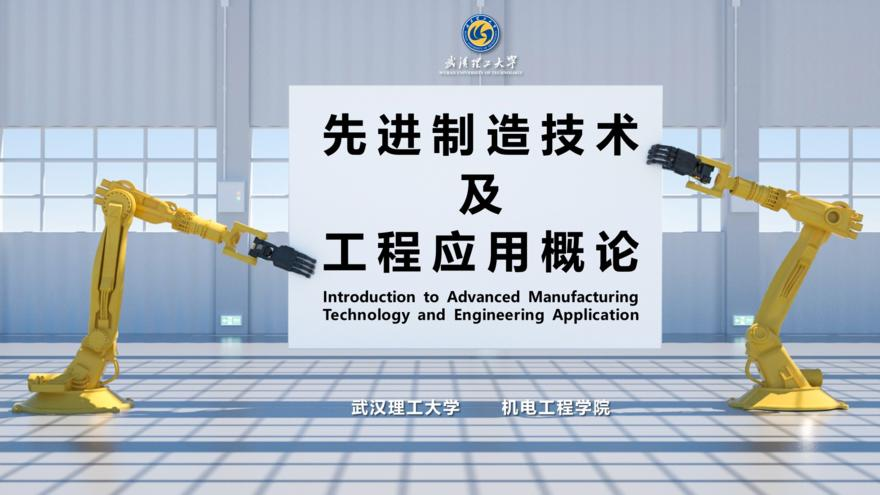
Introduction to New Structural Resource and Environmental Economics课程:前往报名学习
Welcome to our course: Introduction to the New Structural Resources and Environmental Economics! This course is creatively developed under joint cooperation of the School of Economics & Management, Nanchang University, and the Institute of New Structural Economics, Peking University.
开设学校:南昌大学;学科:经济学、
Welcome to our course: Introduction to the New Structural Resources and Environmental Economics! This course is creatively developed under joint cooperation of the School of Economics & Management, Nanchang University, and the Institute of New Structural Economics, Peking University.
-1.1.Formation and Development of Resource and Environmental Economics
--1.1.1Development of Resource and Environmental Economics in the World
--1.1.2Development of Resource and Environment Economics in China
-1.2.Formation and Development of New Structural Economics in China
--1.2.1.Resource Utilization and Environmental Protection in China
--1.2.2.1.Externality Theory of Neoclassical Economics
--1.2.2.2.Property Rights Theory of New Institutional Economics
--1.2.2.3.Governance in Behavioral Economics
--1.2.2.4 .Contingency Theory of Planning
--1.2.2.5.Technological Change of Innovation Economics
--1.2.3.1.Development of New Structural Economics in China
--1.2.3.2.Development of New Structural Resources and Environmental Economics in China
-Chapter 2 testing
-2.1.Supply and Demand of Resources and Environment
--2.1.supply and demand of resources and environment
-2.2.Classical Externality Theory
--2.2.Classical Externality Theory
-2.3.Externality Theory from the Perspective of New Structural
--2.3.1.The externalities of environment and renewable resources
--2.3.2Proactive government and Externalities
-Chapter 2 testing
-3.1.Classical Public Goods Theory
--3.1.1.Characteristics of Public Goods
--3.1.2.Supply of Public Goods
-3.2.Public Goods from the Perspective of New Structural
--3.2.1 hard and soft infrastructure
--3.2.2China's infrastructure construction
-Chapter 3 testing
-4.1.Meaning and Concept of Property Rights
--4.1.Meaning and Concept of Property Rights
-4.2.Properties and Functions of Property Rights
--4.2.Properties and Functions of Property Rights
-4.3.Definition, Allocation and Protection of Property Rights
--4.3.Definition, Allocation and Protection of Property Rights
-4.4.Separation of Three Rights
--4.4.Separation of Three Rights
-4.5.River Basin Ecological Compensation
--4.5.River Basin Ecological Compensation
-Chapter 4 testing
-5.1.Resources Environmental Bearing Capacity Theory
--Resources Environmental Bearing Capacity Theory
-5.2.The Concept of Sustainable Development
--The Concept of Sustainable Development
-5.3.Sustainable Development in China
--The formation of sustainable development in China
-- China's Achievements in Sustainable Development
-5.4.Implementation of Sustainable Development
--Way to Implement Sustainable Development Strategy: Circular Economy
--Sustainable Industrial Production Model: Cleaner Production
--Sustainable Agricultural Production Model: Ecological Agriculture
--Challenges and Countermeasures on China's Ecological Environment
-Chapter 5 testing
-6.1.Classical Fiscal Decentralization Theory
--Classical Fiscal Decentralization Theory
-6.2.New Structural Fiscal Decentralization Theory
--New Structural Fiscal Decentralization Theory
-Chapter 6 testing
-7.1Fundamental Principles
-7.2Core Essences
-Chapter 7 testing
-8.1Development predicament of coal resource-based cities
--Development predicament of coal resource-based cities
-8.2Government function dislocation in the sustainable development of resource-based cities
--Government function dislocation in the sustainable development of resource-based cities
-8.3Game theory analysis of Causes for the dislocation of local government functions
--Game theory analysis of Causes for the dislocation of local government functions
-8.4Path of government governance reform -building a guiding-type government
--Path of government governance reform -building a guiding-type government
-Chapter 8 testing
-9.1Overview and development of the environmental protection tax
--Overview and development of the environmental protection tax
-9.2Environmental Protection Tax and Regional Quality Development
--Environmental Protection Tax and Regional Quality Development
-9.3Double dividend effect of environmental protection tax
--Double dividend effect of environmental protection tax
-Chapter 9 testing
-10.1The energy transition and low-carbon development
--The energy transition and low-carbon development
-10.2The framework of energy transition analysis under the New Structural Economics
--The framework of energy transition analysis under the New Structural Economics
-10.3Evidence from China’s energy transition and policy implications
--Evidence from China’s energy transition and policy implications
-Chapter 10 testing
田西,南昌大学教授,硕士研究生导师,循环经济研究所所长,人口资源与环境经济学学科方向带头人,省高层次引进人才。主讲课程《资源与环境经济学》、《循环经济学》、《产业经济学》。主持国家自然基金1项、省部级科研与教改项目5项,出版专著《再生资源产业绿色发展研究》,作为第一/通讯作者发表循环经济领域SCI论文10余篇。
熊欢欢,南昌大学讲师,博士生,硕士生导师,ACCA(特许公认会计师)会员,南昌大学中国中部中心生态经济研究所兼职研究员,主要研究方向为城市化与生态经济。主持国家社会科学基金项目1项,省级项目3项。被评为全国“ACCA年度优秀专业指导教师”、南昌大学“青年岗位能手”、“两学一做”先进典型代表、“优秀本科毕业论文指导教师”等,获得南昌大学“韦林”奖教金、教学成果奖、授课质量优秀奖等多项荣誉,在国内外核心学术期刊上发表论文十余篇。
教育部长江学者特聘教授(2012年),博士研究生导师,南昌大学副校长。主讲课程《生态经济学》、《区域经济模型与方法》、《区域与城市经济学》;主持国家社科重大、重点项目,以及国家自然科学基金项目等11项,主编应用经济学教学与科研系列教材六部,出版学术专著八部;在国内外学术期刊上发表论文140余篇。
博士,副教授,硕士生导师,南昌大学赣江青年学者。研究兴趣和方向为区域经济增长与可持续发展、区域创新网络与空间计量、宏观金融与银行效率评价。主持国家社科基金项目1项,省部级课题4项。在《International Review of Economics and Finance》、《数量经济技术经济研究》和《科学学研究》等SSCI/CSSCI发表学术论文多篇。担任SSCI期刊《Emerging Markets Finance and Trade》和《North American Journal of Economics and Finance》匿名审稿专家。
近5年主讲《微观经济学》、《统计推断(双语)》、《宏观经济政策概论》等。在资源环境经济领域,以第一/通讯作者发表《财政分权对环境质量影响的实证研究》等多篇论文,出版专著1本;长期跟踪中国财税体制研究,先后主持多项江西省高校人文社科项目、江西省教育科学规划项目、湖北省地方税收研究中心科研项目及南昌大学教学改革项目,参与了多项国家社科基金项目、中国财政学会项目以及湖北省科技软科学项目。
澳大利亚维多利亚大学战略经济研究院研究员,商学院中国经济教学项目授课讲师。研究方向为能源经济学、农业经济学、环境经济学、应用计量经济学。发表SCI/SSCI及EI论文十余篇。
北京大学新结构经济学研究院,博士后。主要研究领域:新结构环境经济学;与林毅夫和付才辉老师合作出版专著《新结构环境经济学初探——理论、实证、案例与政策》等。以第一/通讯作者发表论文10余篇。

